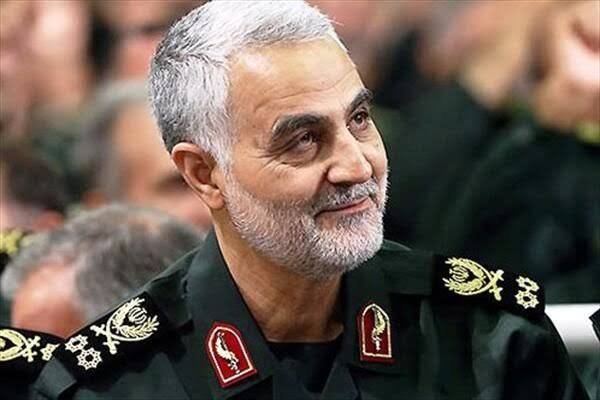Iran’s Islamic Revolutionary Guard Corps (IRGC) says it will not halt efforts to revenge the death of its top commander in a US bombing as a condition for lifting sanctions – a significant sticking point in recovering a vital nuclear accord.
In January 2020, General Qassem Soleimani, the chief of the elite Quds Force, the IRGC’s international operations arm, was killed in a US drone strike in Baghdad, Iraq’s capital.
“Enemies have asked us on multiple occasions to forego avenging Qasem Soleimani’s death in exchange for the easing of some sanctions. The IRGC’s Sepah News website quoted navy commander Rear Admiral Alireza Tangsiri as adding, “But this is a delusion.”
Former US President Donald Trump ordered Soleimani’s assassination, alleging that he was planning a “imminent” attack on US soldiers in Baghdad.
Iran retaliated for his death by firing missiles into Iraqi bases holding US forces a few days later, injuring several people. As a result of the bombings and retaliatory strikes, the Middle East area is on the verge of war.
Iran has been in direct and indirect talks for a year with France, Germany, the United Kingdom, Russia, and China, as well as the United States, to resurrect a historic 2015 nuclear deal known formally as the Joint Comprehensive Plan of Action (JCPOA).
The US unilaterally withdrew from the agreement and reimposed sanctions on Iran in 2018, two years before Soleimani’s assassination, leading Tehran to pull away from its obligations.
Negotiations in Vienna, Austria, are aimed at bringing Washington back into the agreement, notably by removing severe sanctions on Iran and ensuring Tehran’s full compliance with its pledges.
Tehran’s insistence that the IRGC be removed from a US “terrorism” list is one of the major sticking issues.
That sanction, imposed by Trump after he pulled out of the nuclear deal, is legally distinct from the nuclear issue.
Iran must address “US concerns” if it wants sanctions relief beyond the 2015 Iran nuclear deal, the US said on Thursday.
“We are not negotiating in public,” a US State Department spokeswoman stated, “but if Iran wants sanctions lifted beyond the JCPOA, they will have to address our concerns beyond the JCPOA.”
“On the other hand, if they do not want to use these negotiations to resolve other bilateral matters outside of the JCPOA, we are optimistic that we can quickly reach an agreement on the JCPOA and begin reimplementing the agreement,” the official continued. “Iran has to make a choice.”
The Quds Force is Iran’s IRGC’s overseas espionage and paramilitary branch, which is in charge of the country’s affiliated militias abroad. In 2019, the Trump administration added the IRGC to the State Department’s list of Foreign Terrorist Organizations, marking the first time the US officially designated another country’s military as a “terrorist” organisation.
“In the event of a return to the JCPOA, the US would retain and aggressively deploy our powerful instruments to combat Iran’s destabilising activities, its support for terrorism and terrorist proxies, and notably to counter the IRGC,” a State Department spokesperson said.
Right-wing US politicians and Israel, Iran’s arch-rival, have advised the US not to relax sanctions against the IRGC.
Iran announced this week that “technical concerns” in the now-paused nuclear talks had been overcome, but that “political” issues remain first before deal is concluded.
Iran’s foreign minister, Hossein Amirabdollahian, said on Thursday that “we have consistently conveyed [to Washington] that Iran is not willing to renounce its red lines.”
“The criminals, authorities, accomplices, and advisers” in Soleimani’s death “will not go unpunished,” Iran’s foreign ministry spokesperson Saeed Khatibzadeh said on Monday, adding that “these people must be brought to account.”
